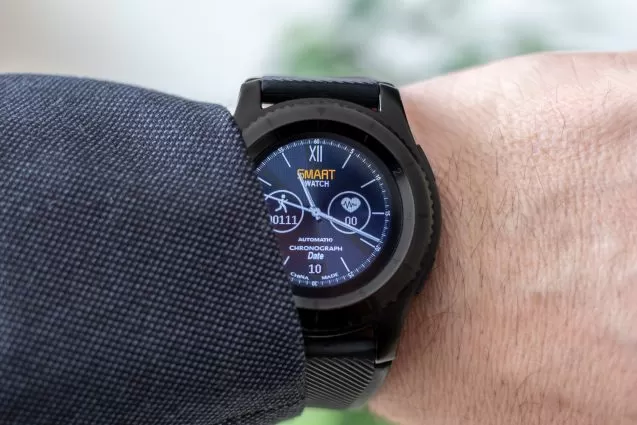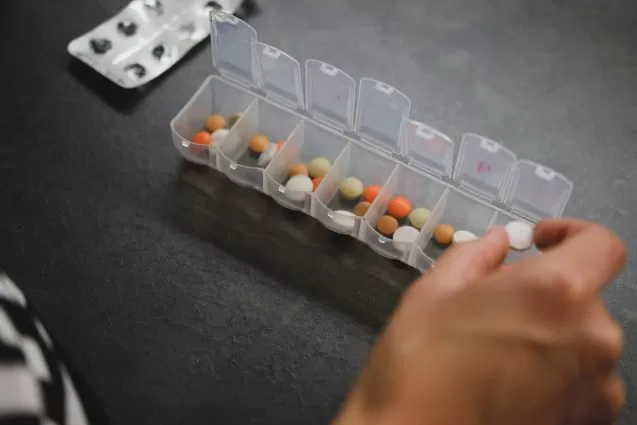The muscle that never rests. Our main engine. Our heart.
We’ve plenty of apps and solutions for mental care and wellness, for diet and sleep, and using them can positively affect heart health as well. But are there any digital solutions that take dedicated care of the most important muscle in our body? Sure.
In our new article, we look closer at the market of heart health software.
Demand for Heart Health Technologies
According to WHO, the third of all deaths in 2019 were caused by heart diseases. In 2021, this sad leadership is only being strengthened, as numerous studies reveal the increased risk of heart failure because of COVID-19. Lack of oxygen, myocarditis, arrhythmias due to a cytokine storm – it’s not just lungs that are affected by coronavirus. The growing economic burden on healthcare makes governments search for solutions that could improve the situation. How?
As with any disease, there is a standard workflow that has been shown to work:
- provide clear information to prevent the disease
- check heart health regularly to prevent severe disease progression
- once diagnosed, treat the disease
- provide post-disease care and support
Let’s have a look at how software can be introduced at each step to improve overall cardiovascular healthcare.
Know Your Heart: Apps to Prevent Heart Diseases
The main behavioral risk factors of heart diseases are the lack of physical activity, permanent stress, use of tobacco and alcohol, and being overweight. These factors might result in increased blood pressure, blood lipids, glucose levels, etc.
So, all the apps and software solutions that help keep your lifestyle active and healthy can be used as heart-caring solutions. Let’s take a look at some of the solutions that present heart health as its focus:
GoogleFit
If your goal is to keep your heart strong, it’s not enough to walk 10,000 steps a day or follow a low-carb diet. The key to the heart’s health lies in changing the pulse rate. Your heart should pump more blood, which helps it get more oxygen and useful microelements. The American Heart Association recommends at least 75 minutes of intense exercise a week to adjust your heart to such short stresses and make it stronger. The heart is a muscle. So, just like your abs, it needs some useful stress and load.
In 2018, Google collaborated with AHA and WHO and developed the Heart Points system for Google Fit. The app encourages you to do at least 10 minutes of active physical exercises daily that increase your heart pumping all while using gamification.
StressScan
It’s trendy to talk about urban stress, relationship stress, burnouts, FMO stress, and its influence on mental health. But mental and physical are mutually connected in a much closer way than you may think. (Here is a minute for product placement: the book Why Zebras Don’t Get Ulcers by Robert M. Sapolsky can explain why your thoughts have such an influence on your body).
Always keep in mind that chronic stress may lead to a higher risk of heart attack, irregular heart rate, increased blood pressure, inflammation, etc.
The problem with chronic stress and stress overall is that people do not always recognize it. We react to stress in very different ways: being angry or frightened is not always the reaction your mind and body can produce as an answer to a stressful situation. Procrastination, focus decrease, fatigue, changed sleeping and eating patterns, frequent colds, loss of sexual desire, etc. Numerous non-obvious signs can signal hidden stress that you have to work through.
StressScan, an app for heart rate monitoring and stress testing, allows users to measure and analyze the user’s heartbeat. Based on this data, the app measures stress index on a scale from 1 to 100. The app has an integrated calendar so you can compare your daily stress levels and find out what exactly stresses you out. There are also additional helpful app features. For example, you can check the effects of favorite meals and drinks on your stress level.
My QuitBuddy
The topic of the influence of smoking addiction on the risk of heart diseases is a well-researched one. You see warnings like “Cigar Smoking Can Cause Lung Cancer and Heart Disease” on every pack of cigarettes. The good news is that within one year of quitting smoking, the risk of sudden heart attack and other cardiovascular diseases decreases by half. And My QuitBuddy can be a great helper for less stressful quitting.
MyDrinkaware
Moderate drinking is harmless for your heart. A daily glass of wine or beer can even protect some people against heart diseases. But excessive drinking (above one glass a day) can lead to high blood pressure, heart failure, stroke, increased atrial fibrillation risks, and even cardiomyopathy (a disorder that affects the heart muscle.)
For those who want to track or change their alcohol consumption habits and understand its influence on physical and mental health, MyDrinkaware app can be a good companion. The app tracks and analyses the user’s drinking habits in a gamified way. It also offers tests and educational content that help users understand the connection between alcohol consumption and chemical processes in their organs.
HeartyScan
Being overweight is often connected to alcohol consumption, chronic stress, sleep disorders, and lack of physical activity. But more often than not, being overweight means uncontrolled and unhealthy food consumption.
Obesity contributes directly to cardiovascular risk factors and diseases such as: dyslipidemia, type 2 diabetes, hypertension, atherosclerotic cardiovascular disease, heart failure, arrhythmias, etc. Some nutrition and weight loss apps focus on diets that are above all healthy for the heart. One of such apps is HeartyScan. Developed as a voice-activated Heart Healthy Diet Assistant, HeartyScan helps the user make healthy food choices that prevent heart disease and other heart-related conditions. The app can scan the product and define its Heart Health Risk Score. Users can create heart-healthy shopping lists within the app, use ready diets or generate a customized diet and share it with their doctor.
CardioVisual
CardioVisual is an educational app created by cardiologists. Using this app, you can learn interactively about heart health, heart-healthy lifestyle, treatment overviews, etc.
As you see, the prevention of heart diseases can be digitized to an extent and is available for almost any smartphone user. Let’s find out how heart disease diagnosis can benefit from using the latest HealthTech solutions.
Check Your Heart: Helpful tools for heart health monitoring
At school, we were taught that the heart rate of a healthy heart at rest is 50-55 beats per minute, and the heart rate after a light warm-up (go up to the fourth floor with some bags) is up to 140 beats per minute. But if suddenly your smartwatch shows you 60 beats per minute while you are sitting and watching Netflix, do not rush to write a will. Our pulse depends on many factors: gender, age, weight, physical state, mental state, etc. But modern technologies allow not only to conduct a self-test, having only a smartphone with you but also to assess your heart condition based on your data.

Apps
According to the IQVIA research, there were over 325,000 healthcare apps available in 2017. Even if the majority of them were wellness, fitness, or yoga apps, some dedicated heart healthcare could have been found among them, too. Here are some of the best-rated heart caring apps in 2021:
Cardiio
Cardiio records your heart rate by taking an image of your face. With every heartbeat, blood flows to the face, and at this moment, the blood absorbs light. The app analyses the image and provides a pretty accurate heart rate result. It also compares the user’s results with the results of their peers.
Instant Heart Rate
This app checks the heart rate when the user places a finger on the camera. It also encourages the user to target a healthy heart rate range taking into account the user’s age and ensuring he or she doesn’t put too much stress.
Blood Pressure Companion
This app records heart rate and builds charts, graphs, and histograms, helping the user to see changes over time. The user can insert weight, age, etc., all of which are factors that influence heart health. All the graphics can be exported as PDF and shown to the therapist.
Web solutions
In 2021, you don’t have to suffer for hours in line to a cardiologist in order to get advice. Just open a clinic’s webpage and do a 10-minute questionnaire. Many web pages offer online risk-calculators, heart age tests, online courses, etc. There are plenty of opportunities to take care of your heart without leaving your room. Here are some of the most trustful and tested web solutions:
My Heart Check
My Heart Check is an online heart health program for people aged between 30 and 75. This online tool includes a questionnaire, a calculator, educational content, etc. It also estimates the approximate age of the user’s heart.
HeartHealth
HeartHealth is a web portal developed by the UK’s NHS. This platform helps users create medical profiles, upload medical reports and scans, track wellness parameters, synchronize all gadgets, connect with health providers, and share records, and get advice. It allows analyzing vital signs in real-time to reinforce a healthy lifestyle.
HeartHealth Quiz
Taking Heart Health Quiz helps users find out their risk factors and discover how to make their hearts strong and healthy.
Wearables
Due to Global Market Insights’ recent research, the wearable cardiac devices market is expected to grow from $5billion to $6.2 billion by 2026. Here are three examples of such devices:
iBeat
This smartwatch monitors heart rate and detects symptoms of heart attack and other cardiac problems. iBeat has an emergency button to notify 911, which is especially important for elderly users. This is an autonomous wearable, and it doesn’t need Internet connection. Another useful feature is remote control: you can track how your patient or family member feels even if you live in another country.
Apple Watch
One in five heart attacks is a silent one: the person doesn’t feel anything and doesn’t recognize the attack, but the heart becomes damaged. Apple Watch uses personal and previously collected data to identify irregular pulse and rhythms and notify you even if you don’t feel the symptoms.
The Garmin Vivosmart
People with heart issues should not only track their heart rate but also continuously control the oxygen saturation level. Garmin smartwatch offers heart rate and heart rate variability (HRV) monitoring as well as saturation levels.
Heal your heart: software for heart disease treatment
Unfortunately, even if you downloaded and regularly used all the solutions listed above, it doesn’t guarantee a 100% protection from heart disorders and illnesses. Some have heart conditions since birth, some live in environments that can affect even the strongest hearts. In such cases, it’s important to get an early and correct diagnosis and start the treatment and recovery as soon as possible.
Heart treatment can include different approaches that could be roughly divided into three groups: changing heart-damaging habits, taking medications, or undergoing surgery.
We have already explored some tools that can help you improve your lifestyle, so let’s have a look at the tools that help people stick to their medication-based therapy.

Medicine Ordering Apps
During the pandemic, e-commerce boomed, and online pharmacy wasn’t an exception. According to U.S. Online Pharmacy Market – Industry Outlook & Forecast 2021-2026 report by ResearchAndMarkets, the U.S. mobile pharmacy market is expected to grow at a CAGR of approx. 19% during the period 2020-2026. The online pharmacy market expects to reach approx. USD 80 billion by this time.
Online pharmacy has some issues like prescription falsifications, data anonymization, etc. But numerous users, especially elderly people, enjoy simple and quick search and medicine delivery with the help of dedicated medicine ordering apps. Let’s have a look at some examples:
NowRx
NowRx is one of the top medicine delivery apps in the USA. In addition to having their orders delivered quickly, customers can get direct prescriptions from a doctor or have a video call with pharmacists via the app.
PillPack
This Amazon online medicine delivery service allows users to create personalized accounts, where they can access caregivers, track their calendars, etc.
NetMeds
NetMeds users can not only order medicine online but also get online access to medical reports, extensive information about pharmaceutical drugs, health-related topics, etc.
Medication Reminder Apps
Having wide access to information, healthcare services, online medicine stores – all of this is meaningless if the patient ignores the treatment.
Medication non-adherence or MDA is one of the biggest challenges for US healthcare today. According to a recent study by the Kaiser Family Foundation, 29 % of older adults did not take their medicines as prescribed. According to the American Heart Association, 24% of patients who suffer a heart attack do not fill their medications within 7 days of discharge. 34% of heart attack patients with multiple prescriptions stop taking at least one of them within one month of discharge.
MDA causes 30%-50% of treatment failures and results in approximately 125,000 preventable deaths a year. A therapist cannot control every patient every day, but apps can sometimes solve this problem. Only sometimes, because according to some research, MDA is often caused by financial issues, low patient literacy, and mistrust in medical treatment, so it isn’t just forgetfulness that stops people from taking their meds. Here’re some notification and reminder apps for medical treatment for those who struggle to remember all prescriptions:
MedHelper
MedHelper provides users not only with schedules and reminders but also with a bunch of useful information like medicine names, instructions on how to take them, side effects, etc. There is also an inventory function that shows the remaining quantity of medicine.
Medisafe uses gamification to encourage patients to stick to their treatment. The app shows the progress, educates users, and notifies them.
Conclusion
Cardiovascular diseases are generally diagnosable, controllable, and treatable. But they still cause millions of preventable deaths worldwide. Two third of cardiovascular deaths take place in low- and middle-income countries with limited access to healthcare services. And that’s where digital tools can be handy, too. Apps cannot replace doctors and they definitely should not. But they are great helpers for increasing patients’ literacy and awareness of diseases. They can encourage people to have a heart-healthier lifestyle, as well as give everyday tips and tricks on how to keep hearts healthy and strong.
The cardiovascular disease (CVD) technologies market is expected to exceed $40 billion by 2030. If you would like to develop your solution for heart health, contact the Elinext team to get a professional and experience-based consultation.









